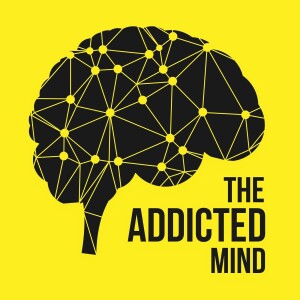
201: A Neurological Approach to the Treatment of Addiction with Dr. Michael Barta
 2022-10-03
2022-10-03
Download
Right click and do "save link as"
It’s important to look at addiction from the perspective of seeing how the body operates, specifically our nervous system. By figuring out what changes can be done from a neurological approach, we then begin to heal, treat, and change for the better.
If your nervous system isn't in tune, then you're not going to be able to make those connections. You go down the path of loneliness and because it’s too painful, you try to find a way out. And if you don’t know what’s going on in your nervous system, then you resort to sex, drug, alcohol, etc. – and you get stuck.
On this episode, Duane speaks with Dr. Michael Barta, a licensed professional counselor and certified sex addiction therapist, about the neurological approach to the treatment of addiction. Dr. Barta created the TINSA and ENTUNE models to show how working directly with the brain and nervous system enables individuals to reestablish authentic connections so people struggling with addiction can heal their traumas.
Dr. Michael Barta is a leading expert in addressing and treating the source of sexually compulsive behaviors. He is a pioneer in the neurobiological treatment of addictions. His research-based cutting-edge treatments have successfully treated hundreds of men, women, and couples facing the devastation caused by sexually compulsive behaviors, helping them return to living authentic lives.
In this episode, you will hear:
What is the polyvagal system?
What is TINSA?
What is ENTUNE?
Working with a system instead of trying to control a system
What is a deprivation trauma?
The need for co-regulation of the social engagement system
How to activate the social engagement system
Key Quotes:
[08:08] - "Polyvagal means that the autonomic nervous system is broken down into three branches. This was revolutionary because up until that time, we thought it was just two branches."
[10:36] - "My work became about how these traumatic events affect the person. And what I found in my work was that this nervous system was malaligned."
[12:47] - "What sex addiction has been called for years – intimacy disorder. But there's never been a super great neuroscientific explanation of intimacy disorder."
[15:00] - "We have this operating system inside of us. And each one of us has one. And it happens below our level of consciousness. But it's responsible for everything we think, say, and do."
[23:10] - "It wasn't about the high. It was about the quiet. It was about finally, the noise turned off in my body – the anxiety, the self-loathing, the insecurity – it was gone."
[39:54] - "You're doing it because you're hurt, and start healing the hurt. If we heal the hurt, we don't have to kill the pain."
Subscribe and Review
Have you subscribed to our podcast? We’d love for you to subscribe if you haven’t yet.
We’d love it even more if you could drop a review or 5-star rating over on Apple Podcasts. Simply select “Ratings and Reviews” and “Write a Review” then a quick line with your favorite part of the episode. It only takes a second and it helps spread the word about the podcast.
If you really enjoyed this episode, we’ve created a PDF that has all of the key information for you from the episode. Just go to the episode page at www.theaddictedmind.com to download it.
Supporting Resources:
https://drmichaelbarta.com/
NovusMindfulLife.com
TINSA: A Neurological Approach to the Treatment of Sex Addiction
https://www.amazon.com/TINSA-Neurological-Approach-Treatment-Addiction/dp/198173869X
The Polyvagal Theory by Dr. Stephen W. Porges
https://www.amazon.com/Polyvagal-Theory-Neurophysiological-Communication-Self-Regulation/dp/0393707008
Episode Credits
If you like this podcast and are thinking of creating your own, consider talking to my producer, Emerald City Productions. They helped me grow and produce the podcast you are listening to right now. Find out more at https://emeraldcitypro.com. Let them know we sent you.
Learn more about your ad choices. Visit megaphone.fm/adchoices
view more
More Episodes
187: Rebroadcast - Ursula Whiteside
 2022-06-27
2022-06-27
 2022-06-27
2022-06-27
178: Living Undeterred with Jeff Johnston
 2022-04-25
2022-04-25
 2022-04-25
2022-04-25
173: Worry Less Now with Gigi Langer
 2022-03-21
2022-03-21
 2022-03-21
2022-03-21
012345678910111213141516171819
Create your
podcast in
minutes
- Full-featured podcast site
- Unlimited storage and bandwidth
- Comprehensive podcast stats
- Distribute to Apple Podcasts, Spotify, and more
- Make money with your podcast
It is Free
- Privacy Policy
- Cookie Policy
- Terms of Use
- Consent Preferences
- Copyright © 2015-2024 Podbean.com




